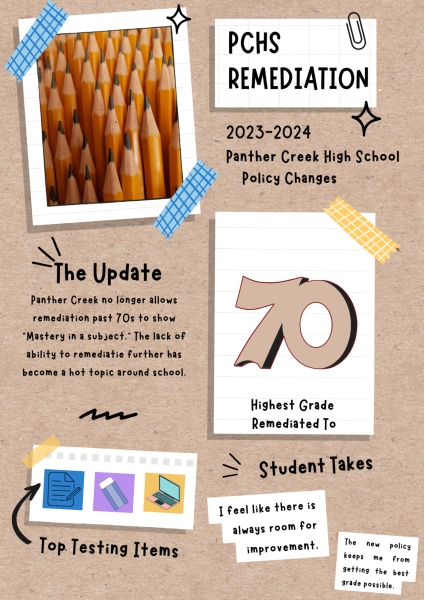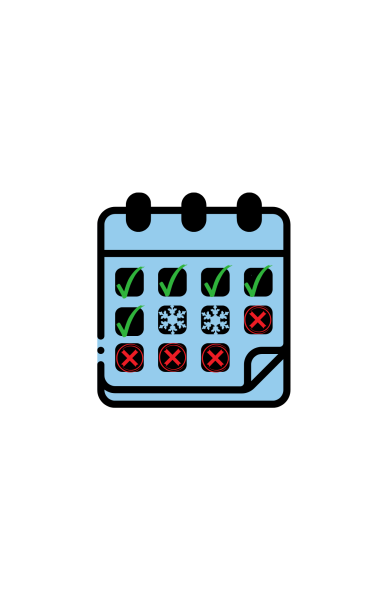Teacher’s Insight on Standardized Tests
According to TIME magazine, the use of standardized testing dates all the way back to ancient China, when those running for government were required to be tested on their knowledge of China’s history. During the mid-1800s, standardized tests found their way into the American education system as the classrooms began to grow in size. Although it’s original purpose hasn’t changed, the stakes have risen dramatically for students, teachers, and the entire American education system.
The effectiveness of standardized testing has been hotly debated; especially once the No Child Left Behind Act of 2002 was passed, mandating all fifty states to partake in standardized testing, the U.S. went from being ranked 18th in the world for math in the year 2000 to 25th in 2013. There was also a similar decline in reading and almost no change in literacy rates. Although there are many reasons for the decline, the pervasive use of standardized tests may be the leading cause. This is mostly because teacher evaluations, funding for the school district, and a student’s chances of progressing to the next grade level all rely on the students’ success. The fact that all of this is determined simply by the students’ ability to properly bubble in answers shows that there will be some downfall to this plan.
While some believe that standardized tests can be a good marker of students’ achievements in class, others argue that they can negatively affect students’ learning experiences and also set limitations for teachers. To get more insight, I decided to ask how Panther Creek teachers felt about giving students standardized tests.
“We end up having to teach them testing skills… when really it’s more important that they learn the content,” said Ms. Wilhem, a science teacher. She went on to say that standardized tests have divided students between good and bad test-takers, and that the overall results become less accurate when the number of those being tested continue to grow in size, because the situation of the student cannot be accounted for when the results are being analysed. There’s no way to tell that the student could have been ill, suffering with internal trauma, suffers from anxiety or depression. A school like Panther Creek, with an overflowing population of 2,905 students, students socio-economical problems are most likely to go unnoticed, especially when bubbling answers is the only way to show for it. “When [students] are given a type of test, and all students are compared to each other based on that one test, it may not be a fair representation on the students’ knowledge,” says Ms. Wilhem.
Most students also seem to agree with Ms. Wilhem. “It’s hard for a student to remember that they are more than a test score,” said senior Riya Desai, “How are colleges supposed to know everything about me through test scores? I highly doubt that my whole life can be portrayed through my SAT or ACT scores, but that’s the only thing that seems to matter when applying to colleges.”
Standardized tests are not only meant to show progress on students achievements, but they are also a means of acquiring statistics for comparing schools to other school and counties to other counties. As science teacher Mr. Shea explains, “I think standardized tests are the only way for us to be able to compare Panther Creek to schools within Wake County, and then compare Wake County to other counties in North Carolina, and then North Carolina to other schools in the country. But the problem is, are we teaching the same way other states in the country are teaching their students? Most likely not, and that can really change the statistics coming from these standardized tests.”
All the interviewed teachers seem to agree that standardized tests puts large amounts of stress on the students. This, science teacher Mr. Arul explained, is a result of the lack of teacher input in the making of these tests. “If it’s all just being made by the state and it’s all being standardized,” Mr. Arul commented, “the questions, at times, can be very broad; whereas in the classroom, the teacher may go in-depth with the information that won’t be asked in detail on the final exam.”
The ambiguity of the final exam has to be the largest barrier for teachers and students. Without giving teachers a say on what should be asked on tests, teachers often find themselves having to take control on what should be taught in detail and what shouldn’t. “Teachers’ input on standardized tests can lessen the chance of a student not being prepared for what’s on the test, and also allow teachers to feel ownership in what they are teaching,” says Mr. Arul.
From cheating scandals to the unnaturally high levels of student stress, it’s obvious that something in our system needs to be fixed. Although it’s true that changes are being made to the current system, the problem will never be fixed until we acknowledge the underlying problem: anything standardized should be avoided when the stakes are high and students are crumbling under the pressure.









